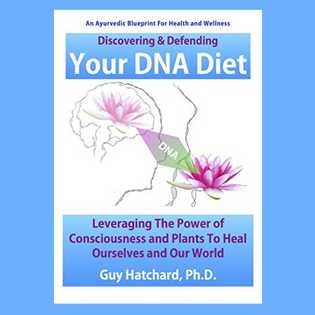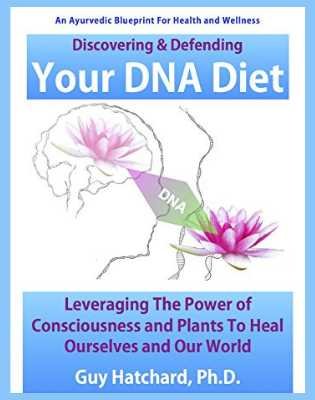Unfortunately none of the above are ever likely to publicly debate their policy to deregulate biotechnology, instead they are saturating a compliant media with disingenuous tales about how wonderful it all is. So a big thank you this week to Reality Check Radio who set up a virtual debate.
This article is available as a PDF to download, print, and share.
As a result, this week I appeared on Mornings with Paul Brennan right after an interview with biotech advocate Dr. Alec Foster and was able to fact check his claims and those of an earlier interview with Science and Technology Minister Judith Collins. My main take home was shock at the brazen deceit being employed to get this policy over the line with a suspicious public. You can listen to the replays, but here are some of the main points fact checked:
Claim: Replacing oil based plastics with plastics made from biowaste will be a big step forward for New Zeaand to combat climate change and secure export markets.
Reply: Replacing one type of plastic with another more costly manufacturing process is still associated with the same problems of plastic pollution, plastic waste and microplastics which are affecting our environment and our health. Moreover biowaste fermentation is an energy intensive process, that energy has to come from somewhere.
Claim: Our trading partners will demand that our products must be climate friendly. At the moment, multi-billion dollar New Zealand biotech research companies developing non-oil products are becoming successful by relocating from New Zealand to the US to avoid our restrictive regulations.
Reply: Pressed to give an example, Dr. Foster named Lanza Tech a New Zealand company now based overseas. Lanza Tech was worth US$1.6 billion in September 2023, but a year later it is now valued at only $250 million—six times less. This is indicative of the market rejection of such expensive biotechnologies, no one can afford them
Dr Foster was introduced as personally holding more than 40 biotech patents which might give you a better clue as to what is driving the change. In addition to biotech deregulation, are we also likely to see more regulations forcing us to buy the patented so-called ‘climate friendly’ products?
Claim: There is nothing (yes, nothing at all) to be worried about in biotech.
Reply: I can’t imagine a more absurd and deceitful claim. Dr. Foster, Judith Collins and Chris Luxon seem to be wilfully blind to the glaringly obvious, we are still suffering the global fall out from an engineered virus and a failed vaccine, both developed in an unregulated biotechnology experimental research environment. This has involved a massive global surge in disease rates and excess deaths which is still continuing. The pandemic involved millions of deaths, played havoc with the global economy, and disrupted education for hundreds of million young people. Our leaders are telling us there is nothing to worry about when it comes to biotechnology, are they just plain dumb or is their motivation more sinister? You tell me.
In fact, biotech laboratory accidents and escapes are very common indeed around the world as this investigation from highly respected Chatham House entitled “Laboratory accidents and biocontainment breaches” found:
“Laboratory accidents can have serious and potentially catastrophic consequences. Laboratory-acquired infections and other biocontainment breaches, both of which can result in the escape of dangerous pathogens into the community, have the potential to trigger outbreaks with wide-ranging implications. Incidents like these are of concern to a broad range of stakeholders beyond the scientific research community – including policymakers, law enforcement agencies and the general public.”
Claim: People suffering from diseases caused or complicated by gene defects are being cured by gene therapy. We urgently need to get on board. It is a no brainer.
Reply: When wishing to elicit public sympathy and support, there is no better argument than to point to the chance of curing of serious and rare diseases tragically affecting families, but is it happening? The example used by Dr Foster was leukaemia. Leukaemia incidence has doubled between 2000 and the present day, and is currently spiking. There are a number of types of leukaemia with a variety of causes including:
- Prior cancer treatments.
- Genetic disorders such as Down syndrome.
- Exposure to certain chemicals such as benzene.
- Smoking.
Despite the hype about miracle gene therapy cures, there have been just two cases anywhere in the world during the last ten years of gene therapy interventions which have alleviated symptoms of leukaemia. One on an infant in 2014, the other on a 13 year old in 2022, both at Great Ormond Street Hospital in London. The costs were enormous, in excess of $3 million per patient and the risks are serious. You can find out more about the financial absurdity involved, by reading our article “The Government of the Bio-Technocrats“.
Dr. Tony Lockett, a rare diseases expert and lecturer at King’s College London (a leading centre for gene therapy research), was quoted in the UK Daily Mail a few days ago. He asserted there are a number of serious risks to CRISPR gene editing used in the treatments. He reports that inserting genetically modified cells into the body could raise the risk of (not cure) cancer. There is also the danger that the virus used to deliver the CRISPR gene therapy may damage the patient. Off-target effects of gene editing are known to include chromosomal damage.
Claim: We already have bioengineered products on our supermarket shelves, in medicine, and in retail which benefit us without adverse effects.
Reply: The first part of this claim is true. There are thousands of synthetic biotech products which have been introduced into our food chain. This is a big problem because synthetic biotech ingredients, flavours and additives are being falsely passed off as natural, introduced without labelling and hence traceability. If we were developing health deficits as a result, no one would be any the wiser as to the cause.
Dr Foster gave the example of genetically engineered rennet which is now in virtually all our cheeses, having replaced natural rennets used to make cheeses safely for thousands of years. The biotech rennet is a powerful biochemical designed to precipitate solids in solution. The suspicion is that it might be affecting our blood and complicating conditions like heart disease, strokes, menstrual cycles, haemorrhoids, varicose veins, etc. No one knows for sure because in our already deregulated market no one is required to perform safety tests. But we do know that all these conditions are increasing in incidence in the general population and especially among younger age groups.
Contrary to the breezy, smooth-talking style of Collins and Foster, I am sure that every parent would welcome fewer unlabelled synthetic additives in foods, rather than more.
The final example given was the discovery of synthetic insulin which was first produced in 1978 by a recombinant genetic process which clones human insulin. This is often cited as proof that GE medicine is vital for our future. It remains a rare success story, but it is worth noting that it doesn’t cure diabetes, it alleviates symptoms. Diabetes incidence has multiplied more than five fold since synthetic insulin was discovered. A proper diet and exercise regime works, where synthetic biology and drugs have a limited palliative impact.
Claim: Judith Collins claimed that there has only ever been one example of cross pollination from GE crops anywhere in the world.
Reply: This is complete nonsense. It is a huge problem and testing has become a big cost for the organic industry in the US. I know, I worked in the biotech testing industry. Moreover biotech companies have sought to sue farmers whose crops have been contaminated with GE genes through cross pollination, claiming that the farmer is violating patent law. It is impossible to contain or mitigate the effect of genes once released into the environment.
Claim: Judith Collins claims that GE crops will reduce pesticide use.
Reply: This is a controversial topic, subject to current scientific debate. This report examines the arguments and concludes that, based on the evidence, GE crops will not reduce pesticide use, some are even designed to increase their use.
Claim: Judith Collins claims a New Zealand GE biotech company is producing apple trees that will produce fruit in a matter months after planting, thereby immediately benefiting orchardists in Hawkes Bay affected by a cyclone who, without biotech deregulation, will have to wait six years for new trees to fruit.
Reply: This claim is entirely false. New Zealand scientists at Crown Plant and Food Research are trialling lab-grown plant cell fruit production aiming to break new ground by producing fruit without a tree, vine, or bush, and instead using lab-grown plant cells. Collins failed to distinguish between glossy PR containing a vague hope that something might be developed in the future and actual fact. This was Collins at her most deceitful.
Claim: Judith Collins implied that Covid vaccine injury was imaginary. Citing the fact that she had had the vaccine herself without harmful effects.
Reply: Her argument is ridiculous, it is equivalent to saying lung cancer isn’t real because I smoked at one time and I didn’t fall sick. Collins might look at this article in the UK Daily Telegraph from 17th August entitled “Thousands seek compensation after Covid vaccines ‘left them disabled’” which reports “Payments have been awarded for conditions including stroke, heart attack, blood clots, inflammation of the spinal cord and facial paralysis”. The fact that the New Zealand government is still dismissing Covid vaccine injury and gaslighting the victims is a measure of how little you can trust their word on biotechnology deregulation.
Claim: Biotech deregulation has been a financial bonanza overseas. Our farming sector needs to catch up in order to cash up.
Reply: Biotechnology deregulation will turn New Zealand into a target destination for foreign agricultural profiteers wanting suck money out of our profitable farm-based economy. Contrary to the rosy picture painted by Collins, Foster and Luxon, deregulation overseas has ruined the financial stability and sustainability of traditional farming communities. See for example this report on the long term effect of unregulated GMO crops on African farming.
Claim: Prime Minister Chris Luxon claims biotechnology deregulation will be the best thing that has ever happened to New Zealand.
Reply: I leave to you work your way through the fact checking process on this one. You shouldn’t have too much difficulty. Listening to the arguments of our senior politicians, I was struck by their inability to give any credit to the intelligence and insight of our population, who can easily find the evidence of deception and misdirection for themselves with just a few clicks on their keyboard over a very short time period.
In summary, it seems that the government is oblivious to the financial and monopolistic advantage sought by an influential lobby of biotech professionals, corporates, profiteers and investors inside and outside our country calling for the deregulation of biotechnology. They are also in complete denial about the risks. If there is one thing we all care about it is our food. When I worked in Iowa for Genetic ID, a biotech testing and safety company, biotech/chemical giant Monsanto had its HQ nearby. In their staff canteen they served organic food which tells you all you need to know about the safety of biotechnology deregulation and the impact it will have on our food.






